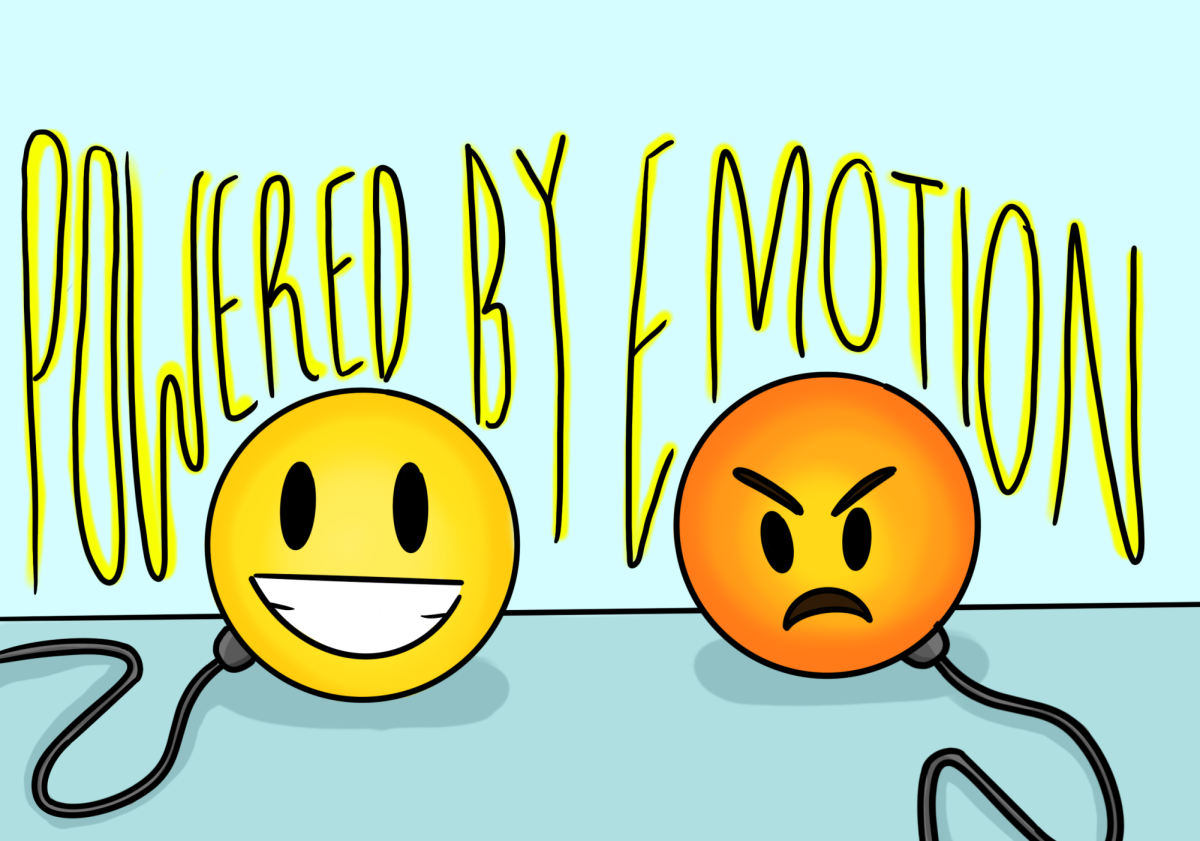The first two pages of the Princeton Review Manual for the SAT make four things clear. One – the SAT acronym stands for nothing. Two – the SAT score accounts for 25% of your application if you are applying to a liberal arts college and approximately 44% if you are applying to a large university. Three – the SAT is not fair. Four – the SAT tests how carefully you read and nothing else. * The first two pages of the Princeton Review Manual for the ACT only include that ACT accounts for 25% of your application for the small liberal arts school, and approximately 44% if you are applying to a large university.* Given this information, it is reasonable for high school students to be frustrated with standardized tests. “I think [standardized tests] are really overrated,” said CHS junior Gillian Teall. “I don’t think that they show your true abilities or anything you’re going into, unless you’re going into test taking, which most people don’t… they [aren’t] an accurate depiction of who you are as a student and how hard you work in school and how right you are for what you go into.”
Reasoning Behind Standardized Tests
CHS counselor John Boshoven explains the reasoning behind standardized tests. “How do you determine the difference between a kid at Community High and a senior applying to Boise State from Boise Central High School? How can they compare curriculum and teachers and methods and buildings? It’s really hard, so [that’s] the reason that standardized tests were originally developed.”
Kristie Nemanis, a teacher from the Princeton Review Test Prep Company in Ann Arbor, elaborates. “It’s supposed to give students a level playing ground across the board. But you know, that’s really up to you whether it’s fair or not.”
According to Boshoven, the SAT was developed to eliminate the “inbred” population of Ivy Leagues by geographical means. Princeton University and the College Board developed the SAT to provide students across the nation with an opportunity to attend an Ivy League. “Believe it or not, the Ivy League created, with the College Board, the first SAT to try to actually open their doors to non-private school kids. Now, so many of these colleges are using them to keep kids out of college,” Boshoven said. The east and the west coasts traditionally used the SAT. However, in 1959 the ACT (American College Test) was developed in Iowa City, Iowa as a competitor to the SAT. It was used throughout the Midwest. Although many states have preferred one test over the other, all colleges currently accept both tests and view them equally.
Importance of Tests
Boshoven cannot stress this point enough. “Most people don’t know the difference [between the two tests] and don’t know that colleges take the best score of either test. So that’s my job to try and be the town crier, to try and inform.” Although the ACT is Michigan’s state test, Boshoven emphasizes the importance of taking both tests to see which is more compatible for the test taker. “The ACT is more of a curriculum based test. So it’s more about the knowledge that I’ve obtained, and hopefully remembered,” Boshoven said. “The SAT is more of an aptitude test… it’s more, ‘Can I derive the answer given the clues and the questions?’ From the four answers given, ‘can I figure out which one is the best one?’” The importance of standardized tests varies by college. “I wouldn’t want students to feel stressed and pressured [about the tests] but it’s part of the game you play. [You’ve got to ask yourself] what’s my goal here? Is my goal Harvard? Well then I have to play Harvard’s game. Is my goal Lawrence University? Well then I have to play Lawrence University’s game. If you want to play the game, you’ve got to play by their rules,” Boshoven said.
CHS student, Teall feels the pressure of getting a satisfactory score on the ACT. “It’s really funny because so many teachers and parents are like, ‘Don’t worry about it because these scores only reflect how you take the test.’ And I’m like alright, well if I’m not supposed to worry about my score, then if I don’t get a good score what am I supposed to do about it? They tell me not to stress about it, but I have to. I have to get a good score no matter what because I need to go to college.”
A Determining Factor
According to Nemanis, standardized tests can determine whether or not a student will be accepted into college. “Depending on what school you go to, it may matter more, but [for] a public university your application gets either considered or thrown out depending on your score,” Nemanis said.
CHS junior Nick Sorscher sees this as an advantage. “I really like the idea of the ACT because I’m kind of a lazy person. So when they tell you that if you do really well during these four hours, then you’ll be basically set for the rest of your college process, I really like that idea.” However, Sorscher acknowledges that his opinion may not be shared with many others. “Just because I like it doesn’t mean everybody else does. I could see plenty of people being frustrated with the fact that those few hours determine so much, but…if you don’t do very well on your standardized test then you have to work harder in other areas such as your GPA and whatever else gets you into college,” Sorscher said.
Boshoven doesn’t see this usage of standardized tests going away. “It is a really easy way to draw an easy line to say, ‘you can’t get in.’ Especially for the very selective colleges, who are going to get kids with very high grades from very good schools… it’s one of the many measures that they’re trying to cause you to trip up on so that they can eliminate you from the pool.” However, according to Boshoven, 800 of the 3,500 colleges in the United States no longer require standardized tests. These tend to be smaller colleges. “They’re the ones taking the risk to say, you know, I think we need to get to know these kids in other personal ways. The big schools aren’t going to know the kids in any way,” Boshoven said.
A Controversial Connection
The main reason these colleges do not require standardized tests is because of the questionable correlation between standardized tests and performance in college. The Princeton Review admits that the SAT “measures neither intelligence nor the depth and breadth of what you’re learning in high school. It doesn’t predict college grades as well as your high school grades do.” It also says, “It underpredicts the college performance of women, minorities, and disadvantaged students.” According to fairtest.org, there is no definite reason why this is true. However, a study conducted by Phyllis Rosser on the SAT gender gap found that a substantial amount of questions were biased towards males. The results indicated that females generally performed greater on questions regarding humanities, relationships, and aesthetics while males performed greater on questions regarding business, physical sciences and athletics.
As for the ACT, the Princeton Review says, “At its root, the ACT measures academic achievement. It doesn’t pretend to measure your analytic ability or your intelligence…The ACT does not predict your ultimate success or failure as a human being… you should never consider the score you receive on this or any other test a final judgment of your abilities.” According to an article written by Lawrence M. Aleamoni and Linda Oboler on The Educational and Psychological Measurement website, the ACT and the SAT are equally competent in predicting first semester college grades. However, the ACT seemed to predict first semester GPA more accurately at highly selective institutions. The Case Against the SAT, written by James Crouse and Dale Trusheim, agrees with the incapability of predicting grades in college. The book claims there are many flaws in a study conducted by ETS (Educational Testing Services), which develops and administers the SAT. “There’s a lot of colleges, a lot of really good colleges, that say, you know when we look at how well our kids do at college, and we compare their test scores coming in to college we realize that it doesn’t necessarily have that much correlation,” Boshoven said. However, The College Board insists that the best predictor is a standardized test combined with the grade point average.
Rise in Test Scores
Regardless, the competition is fierce. Test scores continue to rise. “As more and more people have applied, it means fewer and fewer can get in… so the test scores will go up proportionally with the number of students,” Boshoven said. This is a major concern for CHS junior Senait Dafa, who is preparing for an Ivy League. Dafa studies at least one hour every Saturday and one hour on Sunday, depending on her schedule. “I really want to do well because I’ve been studying a lot for it. I think that in general people just weigh standardized tests too much because it’s not really testing anything, its just testing how you do on standardized tests.”
Nemanis believes a contributing factor to the rise in test scores is the availability of prep courses for the tests. “I feel like it was more of a drastic increase because these courses are more accessible through partnership courses and cheaper prices and more companies are actually around to do that sort of stuff.”
This addresses a major concern of whether standardized tests are really fair. “Guess who pays for those courses? The kids whose families can afford it. So the rich get richer, the privileged get more privileged and they take tests again and again,” Boshoven said.
The average cost of a Princeton Review Ultimate course is $1099. This course includes twelve, three hour-long courses, and four, four hour-long practice tests. The regular course costs $599. This includes seven, three hour-long classes and four, four hour-long practice tests. They offer a money back guarantee if there is no improvement of your score, and a free re-enrollment of the same course if you are unhappy with your results. Nemanis believes the prices listed above have become more affordable and negotiable because of the discounts and various prepping options offered by Princeton Review. This includes a partnership class with over 50 schools, not including AAPS. These courses have higher enrollment, but are less expensive. Princeton Review also claims to have scholarships and contests that provide students with free classes. They also offer three free test dates throughout the year.
However, Boshoven only recommends prep courses to those who want to improve in all areas of standardized tests. “I don’t think a course is ever the first line of defense,” Boshoven said. He suggests taking one of each test and focusing on the areas that needs the most improvement. He believes that even the sophomore PLAN and the PSAT are great indicators of how one will perform on the actual ACT and SAT.
Boshoven has witnessed a growing concern in students’ preparation for the ACT and SAT. “The number of kids who actually want to take a practice test in their sophomore year…this never used to happen. In the last ten years that’s been a really big change. Kids have said, ‘can I take it, before I have to take it, before I have to take it?’” He does not recommend or even encourage this for everyone. “I think for the kid that wants to do it, it’s great. If you’re kicking and screaming and grandmother is dragging you to the course, it’s not going to be of any use,” Boshoven said.
However, he does encourage students to focus on what colleges want holistically. “The five things that they [colleges] are looking for are: grade point average, depth of curriculum, breadth of curriculum, rigor of curriculum and where it was delivered, and the context of the curriculum,” Boshoven said.
He understands that standardized tests are challenging. “[You can] either play the game or decide that there is a way to win the battle without playing the game; and that’s, let’s look at the colleges that don’t require this. And let’s try and get you excited about going to one of these great colleges,” Boshoven said. “So there might be some ways creatively to get off the treadmill of having to always play the game.”
Nemanis acknowledges the dubious validity of standardized tests as well. “I completely understand where the universities are coming from because there is no way of standardizing students, comparing people from different countries, and states, and different towns even. So I do understand why they need something like that, but the test is somewhat skewed. I guess because it just tests how you take a test. The fact that you can improve your score three points just by learning strategies should say something.”
* This is according to the 2009 edition of the Manual for the SAT
* This is according to the 2009 edition of the Manual for the ACT
















